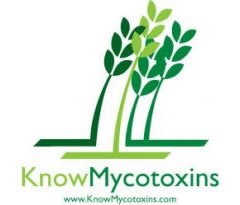Aflatoxin Contamination and Symptoms of Aflatoxin Poisoning
What are aflatoxins?
Aflatoxins are a group of mycotoxins, toxic substances produced by mold. Aflatoxins are produced by many species of Aspergillus fungus at any of the different stages of grain production, from pre-harvest to storage. Like other mycotoxins they occur naturally in various food and feedstuffs including: peanuts, corn and cottonseeds. Aflatoxins are toxic substances that can be the root cause of a vast array of animal diseases with the main target organ for aflatoxins being the liver. Even at small levels, aflatoxins along with other mycotoxins, can exert negative effects on the animal. There are many forms of aflatoxins and the predominant ones are: B1, G1, B2, G2, M1, M2. Their presence in food and feed is highly regulated due to their cancer-causing effects in humans and animals.
What are the symptoms of aflatoxin poisoning?
There have been a number of pet food recalls in the past years related to mycotoxin contamination. A recent study published by the Journal of Veterinary Diagnostic Investigation in 2007 looked closely at one of these cases. "Aflatoxicosis in nine dogs after exposure to contaminated commercial dog food" by S. J. Newman, J. R. Smith, K. A. Stenske, L. B. Newman, J. R. Dunlap, P. M. Imerman, and C. A. Kirk listed some of the symptoms presented by the animals fed with contaminated pet food: vomiting, diarrhea, depression, seizures, abdominal swellings and jaundice.
For more information about mycotoxins, visit www.knowmycotoxins.com.
By: Dr. Swamy Haladi and Manoella Alves
All Categories
Archives
- 五月 2014 (6)
- 二月 2014 (1)
- 八月 2013 (1)
- 七月 2013 (1)
- 六月 2013 (4)
- 五月 2013 (17)
- 九月 2012 (1)
- 八月 2012 (22)
- 七月 2012 (1)
- 五月 2012 (24)
- 四月 2012 (2)
- 三月 2012 (12)
- 一月 2012 (7)
- 十二月 2011 (10)
- 十一月 2011 (12)
- 十月 2011 (2)
- 九月 2011 (4)
- 八月 2011 (12)
- 七月 2011 (10)
- 六月 2011 (11)
- 五月 2011 (35)
- 四月 2011 (4)
- 三月 2011 (10)
- 二月 2011 (12)
- 一月 2011 (13)








